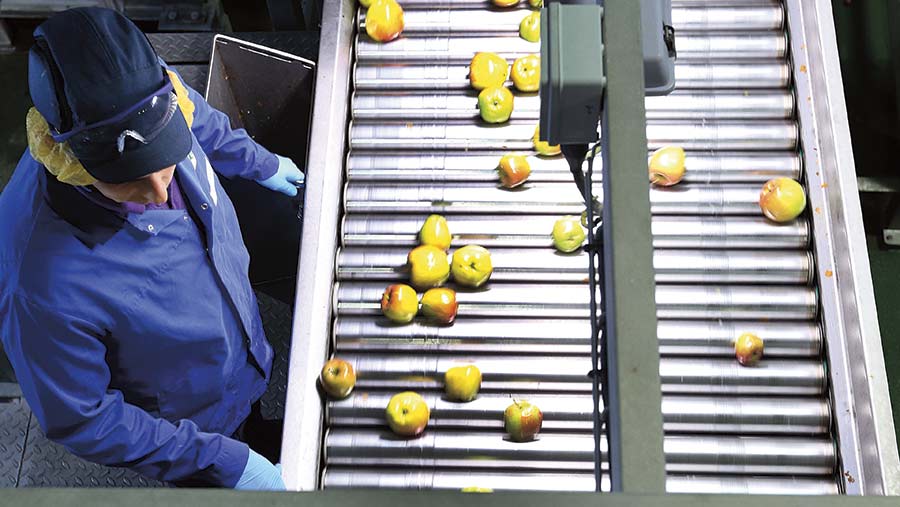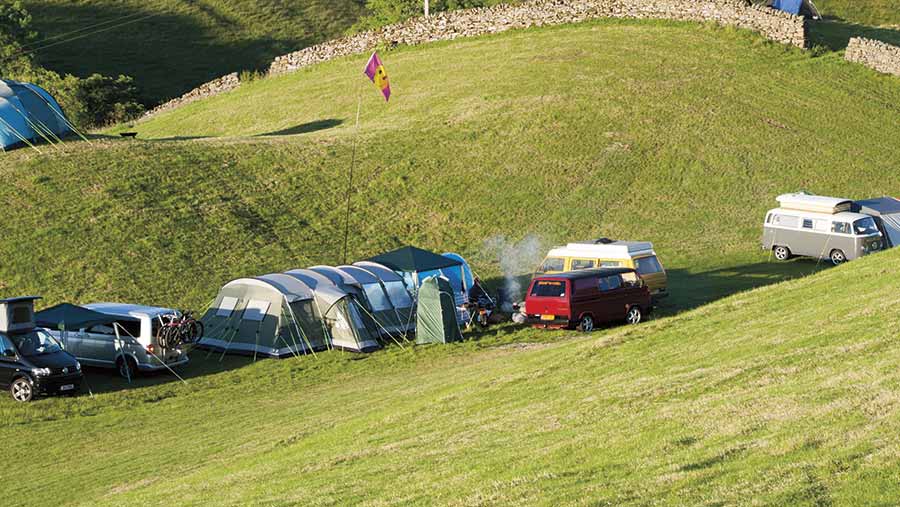Guide to Defra’s Growth Programme diversification grants
 © Alex Maguire/REX/Shutterstock
© Alex Maguire/REX/Shutterstock Farmers in England who invest in projects that will create jobs and growth in the rural economy may be eligible for a grant of between £35,000 and £170,000 under Defra’s Growth Programme.
A total of £120m has been made available to fund the programme, which offers grants to farmers and small businesses investing in either food processing (£48m), rural tourism infrastructure (£39m) or business development (£33m) projects.
Charles Trotman, senior business and economics adviser for the Country Land and Business Association (CLA), said the scheme had been in operation since 2015, but previous rounds had been complicated by different areas calling for applications at different times. There had also been lengthy delays in processing applications.
See also: Slow to start to £177m diversification scheme frustrates farmers
However, lessons had been learned and steps taken to make the process far more straightforward for applicants in 2017, he said.
For example, the guidance booklets have been significantly improved to make it much clearer what projects are eligible and what are not.
This time there will also be just one application window for Expressions of Interest (EoI) which will run until 31 January 2018.
“We had lobbied for a two-year application period, but the government wants the money out of the door by the end of 2018 or early 2019 [ahead of Brexit].
“However, this 12-month window is extremely important and should makes things much simpler.”
The scheme is competitive -– applications must offer value for money and are administered by the Rural Payments Agency.
They are judged against a list of priorities set out by Local Enterprise Partnerships (LEPs) so those that best meet the requirements of their local area will stand the best chance of being accepted.
Mr Trotman agreed that farmers might not find it as easy as they should to find information about their LEP’s priorities.

© FLPA/Wayne Hutchinson/REX/Shutterstock
While Defra’s guidance notes include a helpful map of LEPs and links to all their websites, the links did not always go direct to the relevant section.
“This isn’t helpful to anyone. It is a great idea to have maps but someone should have checked the quality of the LEP websites,” he said.
A series of workshops and seminars is being held in March which will guide people through the application process, he added.
Business development grants
Farmers who want to apply under the business development stream must be looking to diversify into a non-agricultural activity.
The scheme offers funding for constructing or improving buildings and buying new equipment and machinery that will still be in operation within the business after five years.
The money cannot be used to pay for the running cost of the business or to repair or maintain existing buildings.
Nor can it be used to buy machinery or equipment used for agricultural production.
A successful application during the last round of applications was a farm business which has diversified into metal fabrication.
The business had made some gates and railings in the farm workshop, and now has an agreement from a local building contractor to supply gates and railings for building developments.
The business will employ one new skilled person on a full-time basis as a result of the enterprise.
Food processing grants
Food and drink businesses that process agricultural and horticultural products will be eligible for support under the food processing side of the programme.
Several LEPs state that they are looking at applications that will enable farm producers to add value to their primary produce and increase their profit margins.
Previous recipients include a group of farmers who have set up a business to create a new milk-processing facility.
The farmers are working with a regional retailer committed to developing local supply chains for the dairy products sold in their stores.
The business has already secured a rolling five-year deal for supply based on the cost of production and has identified opportunities for production of yoghurt in future years.
Rural tourism infrastructure
The rural tourism infrastructure funding stream is there to help fund projects that will increase tourist numbers and get visitors to stay longer and to spend more money in rural areas.
Projects that may be eligible include those where businesses are diversifying into a new tourist attraction, accommodation, retail or food and drink outlets.
According to Defra’s guidance notes, projects are most likely to get funding if they create at least one full-time job for every £30,000 of grant funding and extend the tourism season beyond the usual period of May to October.
Level of funding
Grants are normally for a minimum of £35,000, though this varies in some LEP areas.
The maximum grant per project is usually €200,000 which equates to £170,000 at current exchange rates.
This funding can be used to cover up to 40% of the project’s eligible costs. This means if the minimum grant is £35,000 the minimum cost of the project is £87,500.
Application process – stage one
There is a two-stage application process for all of the grants.
The first stage is to fill in an expression of interest (EOI) form and email it to RPA.
This form, described as relatively straightforward by the CLA, enables potential applicants to outline their project and explain how a grant will make it bigger and better.
Farmers will be required to give information about their business, including whether it is linked to any others, supply the turnover and balance sheet total from the most recent financial accounts and any details of any previous public funding the business may have had.
Applicants are also asked to outline the objectives of the project and what the outputs will be, give an overview of the costs, show how it fits with the local and national priorities for funding and supply information about the market demand for the project and its impact on similar businesses.
The RPA will look at the EOI form and assess how well the project meets the national guidelines on the priorities for grants and local priorities which are set by LEPs. A decision should come within 30 working days.
Application process – stage two
If it feels the project has potential, the RPA will invite the applicant to make a full application which will involve supplying details of the final project costs, supplier dates, evidence of market research and customer surveys.
On the financial side, business accounts for the past three years will also be required along with evidence that the applicant will be able to cover the project costs before claiming the grant.
This is because the money is paid in stages, in arrears, so the applicant has to cover the costs through private funding sources before they claim the grant.
Top tips for applicants
Jobs plus growth plus rural
The aim of the Growth Programme is to create jobs and growth in the rural economy. The application needs to show the project will help do this.
Sell your idea
Explain really clearly what your project does and how it will benefit the economy.
Show what the funding will mean to the success of your project. If you can show your project is good value for money, and that you are planning to use the grant money to improve your project, you are more likely to get the grant.
If you can show your project is good value for money, and that you are planning to use the grant money to improve your project, you are more likely to get the grant.
Don’t ask for the full amount if you don’t need it
Just because you can get 40% of your costs covered, don’t ask for that amount if you don’t need it. Asking for less money
Asking for less money actually makes your application better value for money.
Do the market research
You have to show there is real demand for what you want to do, or you are unlikely to get a grant.
Be prepared
Keep detailed records about your project, because you’ll have to provide proof (including detailed quotes) of how much the various elements of your project will cost.
Comparable schemes in the rest of the UK
Scotland
The Food Processing, Marketing and Co-operation grant scheme provides capital or non-capital grants for new and existing businesses.
The maximum rate of grant is determined by the size of the business and type of grant, but previous awards have exceeded £500,000.
One funding round has just closed (5 March 2017) with notification of the outcome expected in June or early July 2017. The next funding round closes on 16 July 2017.
Wales
The Food Business Investment Scheme provides capital investment and other support to farm businesses that want to process their own agricultural products,
Grants can range from £2,400 to £5m and can be used to pay for tangible assets such as land, buildings, machinery and equipment and intangible assets such as computer software, patent rights and licences and technical and consultancy fees. It is closed to new applications.
The Co-operation and Supply Chain Development scheme also runs in Wales and provides funding to support the development of new products, practices, processes and technologies in the agriculture, forestry and food sectors. Grants of between £2,400 and £10m are available.
Northern Ireland
The Food Processing Grant Scheme will open later in 2017 and will support businesses looking to invest in equipment and buildings that will add value to local products, improve efficiency and reduce costs. The finer details of the scheme are still being developed.
